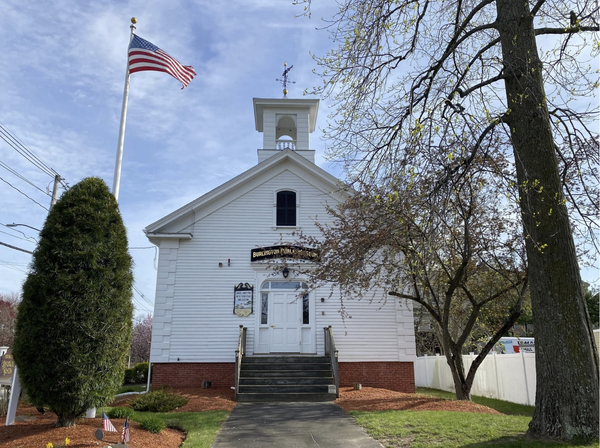MBTA Communities law is not an unfunded mandate, judge rules
A judge in Plymouth County has dismissed a bundle of municipal lawsuits and denied their request for denied grant monies to be disbursed.

A PLYMOUTH COUNTY judge overseeing a bundle of municipal lawsuits from towns seeking to halt enforcement of the MBTA Communities housing law has denied their motion for a preliminary injunction and dismissed their complaints.
In a 40-page decision released Friday afternoon, Superior Court Justice Mark Gildea considered lawsuits brought by the towns of Duxbury, Hanson, Holden, Marshfield, Middleton, Wenham, Weston, and Wrentham, plus a taxpayer suit brought by Hamilton residents.
The collection of suits argued that, because the state auditor’s office concluded that the MBTA Communities law is an “unfunded mandate” by forcing cities and towns near public transit to zone for multifamily development, the state should be blocked from enforcing the law until a funding mechanism is put in place. More broadly, they claimed, the state imposed improper compliance requirements through the law as a condition to receive significant grant funding.
Involving towns across six counties, the decision came at a critical time for a set of MBTA Communities with just over a month left to get into compliance with a revised set of state regulations.
Zoning for a potential 750 new units or more in each community, they argued, would impact infrastructure and services within their borders. These issues touched on water and sewer, education, buildings, roads, and other governmental services along with some municipality-specific concerns. The injunctions would have both freed up grant funds the state was withholding for non-compliance with the law and stop the state from excluding these towns from future grants.
The anticipated possible costs that the towns could incur from the rezoning are “indirect” and therefore not in need of specific funding from the state, Gildea wrote.
Similarly, the towns did not claim specific enough details about infrastructure costs, he wrote.
“The only allegations ... before the court are generalized comments about large-scale issues they foresee,” such as impacts on sewer capacity without specifics, which are not enough to support an unfunded mandate claim, Gildea wrote. There was only “speculation” about possible direct costs, he concluded, noting that the filing and affidavits submitted include words like “may,” “expect,” “possibly,” “anticipate,” and “estimated.”
The court, Gildea wrote, is also not bound by State Auditor Diana DiZoglio’s office finding that the law constitutes an unfunded mandate. He disagreed with the auditor’s ultimate conclusion, calling the determination “flawed as a matter of law.”
There is no requirement to construct new housing, and even advocates of the law argue that claims of overwhelmed resources and booming amounts of new units are greatly overstated.
The regulations being challenged here, he wrote, “do not compel construction. They merely encourage it.”
And there is actually funding available, he said. There are programs – like MassWorks and HousingWorks that are competitive grants for a variety of infrastructure projects associated with housing development – for municipalities based on the cost they claim will arise in either conducting the rezoning process or seeing an influx of related units. The towns did not convince Gildea that the MBTA Communities rezoning process exceeds regular zoning tasks that would make the process cost anything more than “incidental local administration expense[s]” not requiring specific funding.
None of the towns showed that they would likely succeed on the merits of the case and are not entitled to a preliminary injunction that would require releasing withheld grant funding, the judge ruled.
“We are pleased the courts have again affirmed the intent of the MBTA Communities Law, and we look forward to working with the remaining communities to complete their zoning changes,” said Ed Augustus, Secretary of Housing and Livable Communities, in a statement after the ruling. “Massachusetts’ housing shortage has led to unaffordable prices and rising rents, but the MBTA Communities Law is working to deliver new housing where it’s needed most and to bring down the cost of housing for all residents.”
The judge also disposed with the argument that towns like Holden and Middleton are not “adjacent” to the MBTA system and therefore subject to the law. The towns, he wrote, seem to “misconstrue” the word adjacent to mean adjoining – essentially incorrectly claiming they would have to be touching a municipality with MBTA service.
The MBTA Communities law has been a stand-in for the long dispute over city and state powers. Advocates for local control claim that the towns that have actively rejected compliance should be free to refuse.
But this ignores long-held, common understanding that municipalities are merely “creations” of the state Legislature, Gildea wrote. The rights of a town and its voters are “subordinate” to state lawmakers deciding to enact the MBTA Communities law, he added.
Even some municipalities who submitted compliant action plans were hoping to drag their feet on fully rezoning while the courts considered the “unfunded mandate” determination. Gildea’s decision will have implications across the state, including in the first town to resist – Milton. Taxpayers in Milton threw the town into the legal mix yet again by suing at the end of May on unfunded mandate grounds, and the Planning Board is weighing another round of potential but unspecified litigation.
This article first appeared on CommonWealth Beacon and is republished here under a Creative Commons Attribution-NoDerivatives 4.0 International License.![]()
Burlington's Town meeting passed MBTA Communities zoning in May 2024. Learn more about the town's road to compliance:




